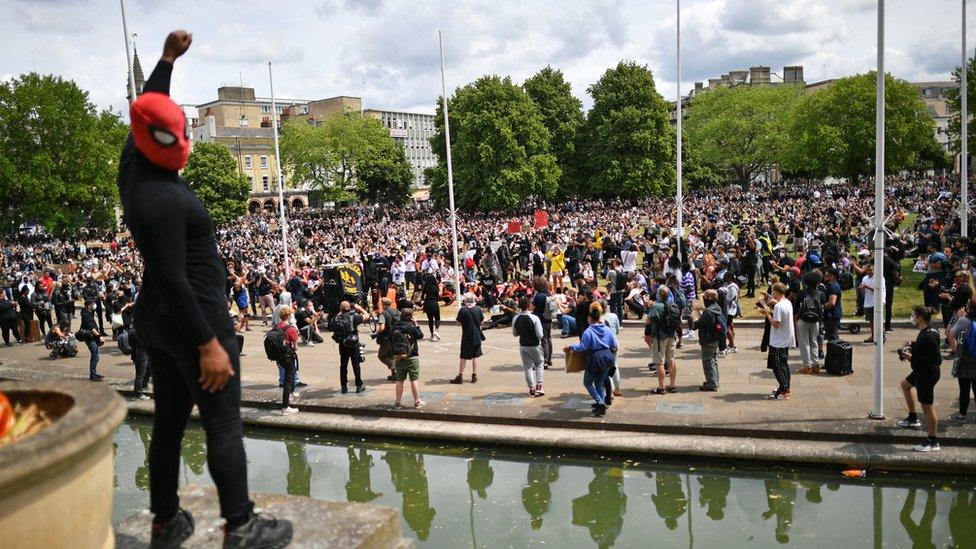Pulling down Edward Colston statue was a 'violent act'
- Published
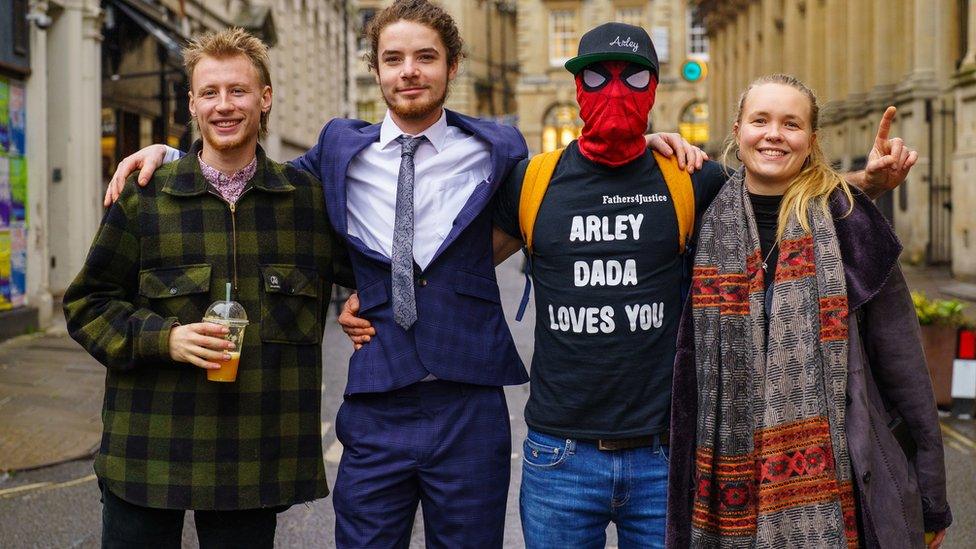
Rhian Graham, Milo Ponsford, Sage Willoughby, and Jake Skuse were found not guilty of criminal damage
Toppling a statue of slave trader Edward Colston was an "unacceptable way to engage in political debate", the Court of Appeal has been told.
The bronze memorial to the 17th-Century slave merchant was torn down during a Black Lives Matter protest in Bristol.
In January, four protesters involved in the toppling were cleared of criminal damage.
All four admitted involvement but denied criminality, saying the statue itself was a hate crime.
Following the jury's decision, Attorney General Suella Braverman referred the case to the Court of Appeal so judges could have the chance to "clarify the law for future cases" - without affecting the four's acquittals.
At the Court of Appeal in London, three judges considered the law around the acquittal of one of the so-called Colston Four - Rhian Graham, 30.
Tom Little QC, for the Attorney General's Office, argued that pulling down the statue on 7 June, 2020, was "a violent act" involving "significant force".
'An act of violence'
"Public monuments, no matter what the context, cannot in a democratic society be damaged in the way this was and this in substance amounts to an act of violence," he told the court.
"Damage to property, like violence against the person, is a simply unacceptable way to engage in public debate," he continued.
He later added: "Acts of criminal damage, whether it is this statue, or many other statues in towns and cities around the country, (they) cannot be pulled down and damaged in the way this was pursuant to the rights under articles 9, 10 and 11."

Colston's statue was thrown into Bristol's harbour
Mr Little suggested a replica of the statue could have been made or "a noose could have been put around the neck of Colston without causing damage".
The court heard the legal issue was whether the jury had to decide if convicting the four protesters would be a "disproportionate interference" with those rights.
Mr Little said: "We submit that the answer to that question is no."
Clare Montgomery QC, for Ms Graham, said the referral to the Court of Appeal should not have been made, arguing part of the Attorney General's argument was "no more than a general attack on the use of juries".
She said in written submissions: "The fact that the jury may have to weigh competing values does not present particular difficulty.
"Juries are often asked to make judgments about balance in relation to moral as well as legal issues.
"Decisions about dishonesty, abuse of position, indecency, as well as reasonable excuse often involve difficult questions of judgment."
'The very heart of protest'
Ms Montgomery later said the exceptions to certain human rights protections were "designed to deal with people who are proselytising on behalf of totalitarian regimes or forming militias" rather than "bolshy" protesters who refused to go through the council to have the statue removed.
"The unwillingness to go through the proper channels is the very heart of protest," she told the court.
The court was told that Colston played an active role in the enslavement of 84,000 black people, with around 19,000 people dying on slave ships from Africa.
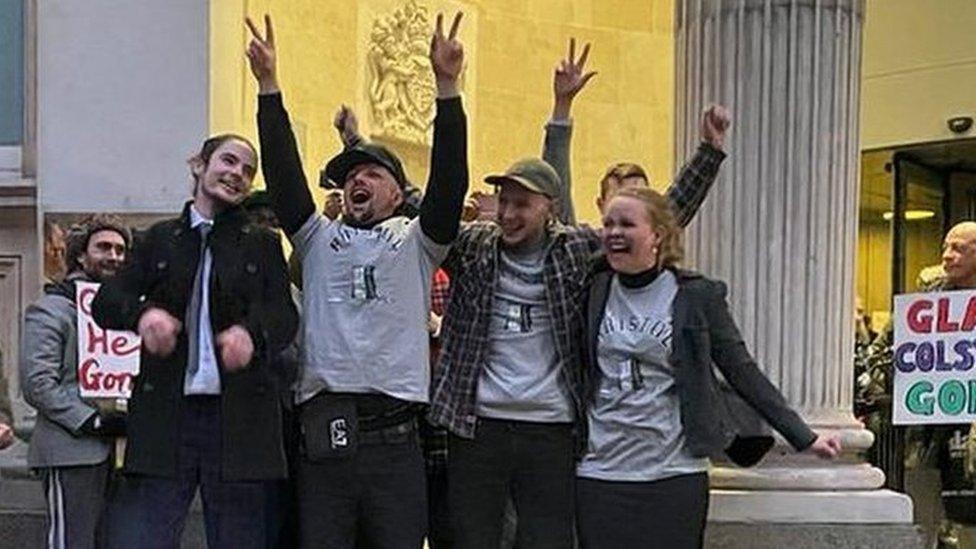
The trial verdict sparked celebrations outside Bristol Crown Court
"The statue caused serious distress, offence and harm to Bristolians and others, including black people," Ms Montgomery said in written submissions.
The hearing before the Lord Chief Justice Lord Burnett, Mr Justice Holgate and Mr Justice Saini is expected to conclude on Thursday with a decision at a later date.

Follow BBC West on Facebook, external, Twitter, external and Instagram, external. Send your story ideas to: bristol@bbc.co.uk , external
Related topics
- Published16 December 2021
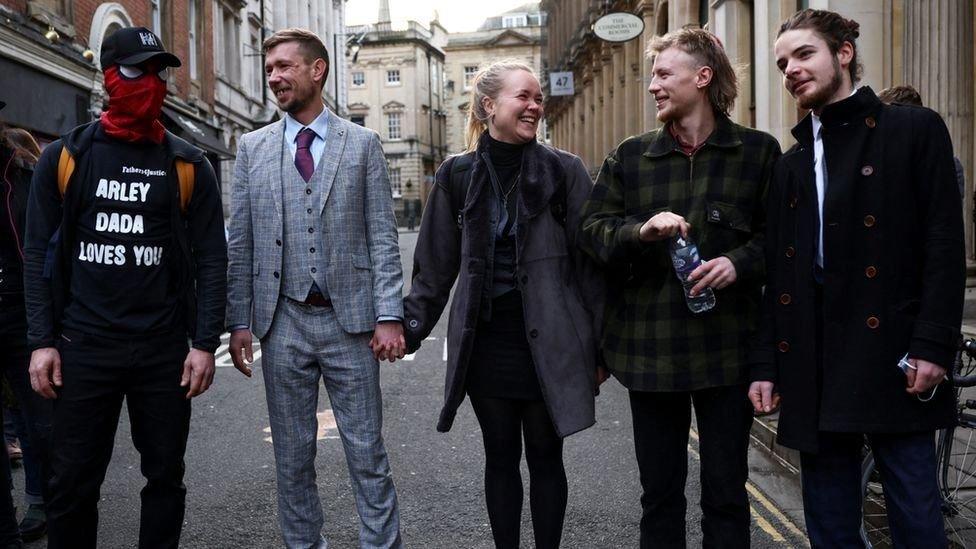
- Published28 May 2021
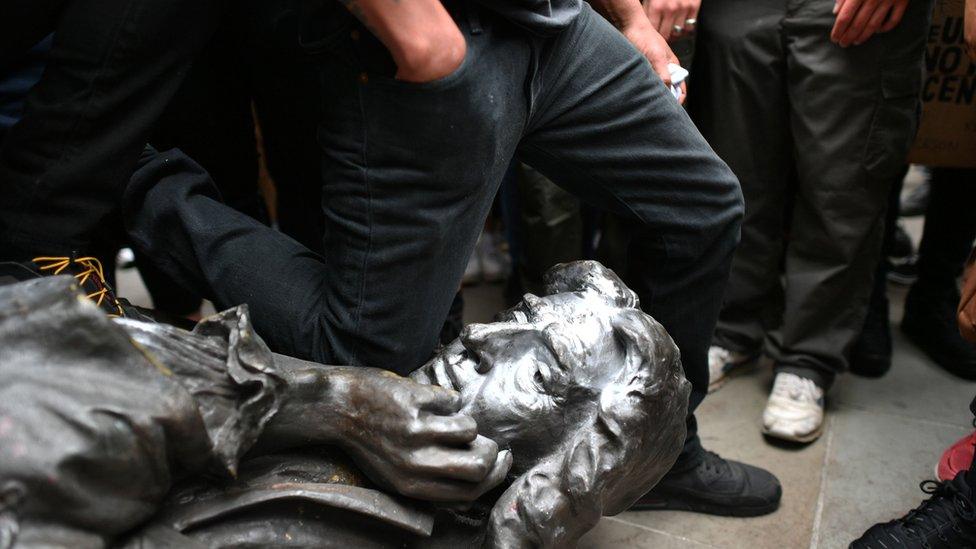
- Published11 June 2020
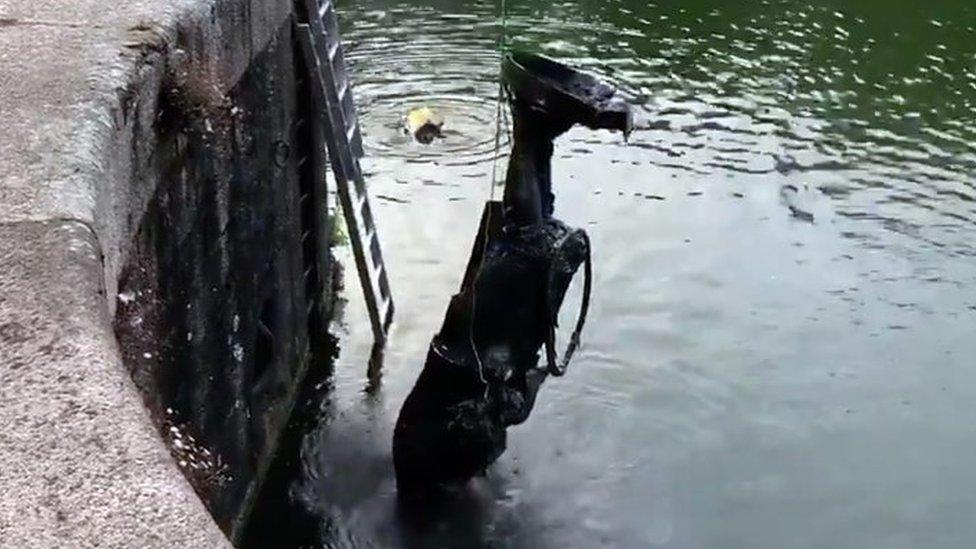
- Published8 June 2020
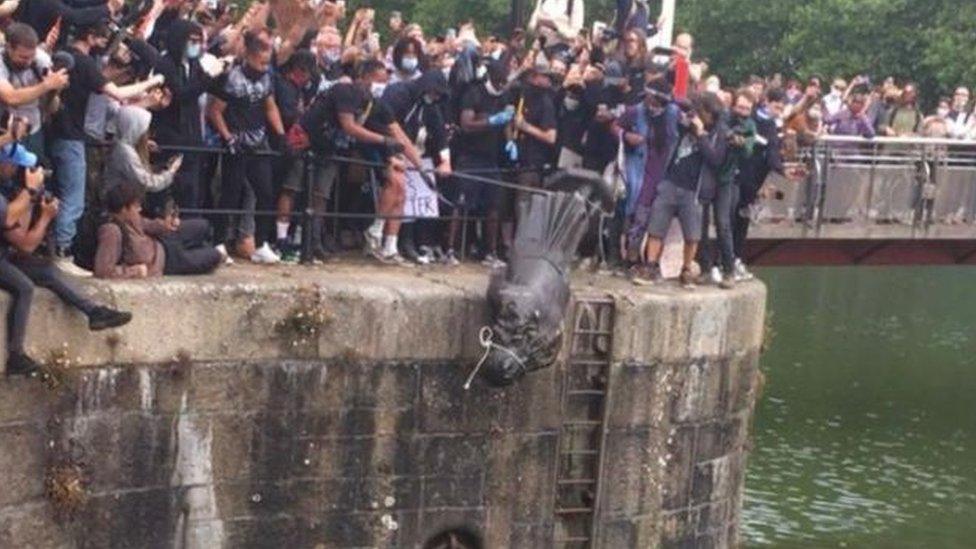
- Published10 June 2020
